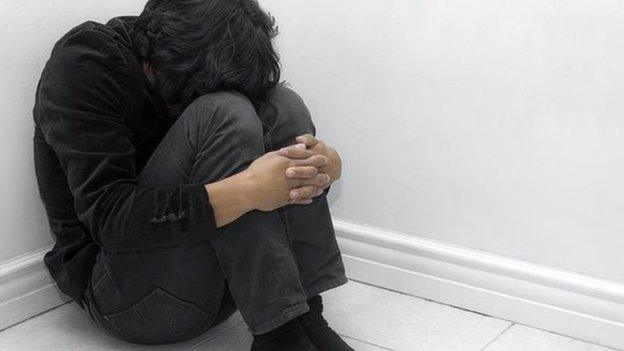Young goths and depression: Your stories
- Published
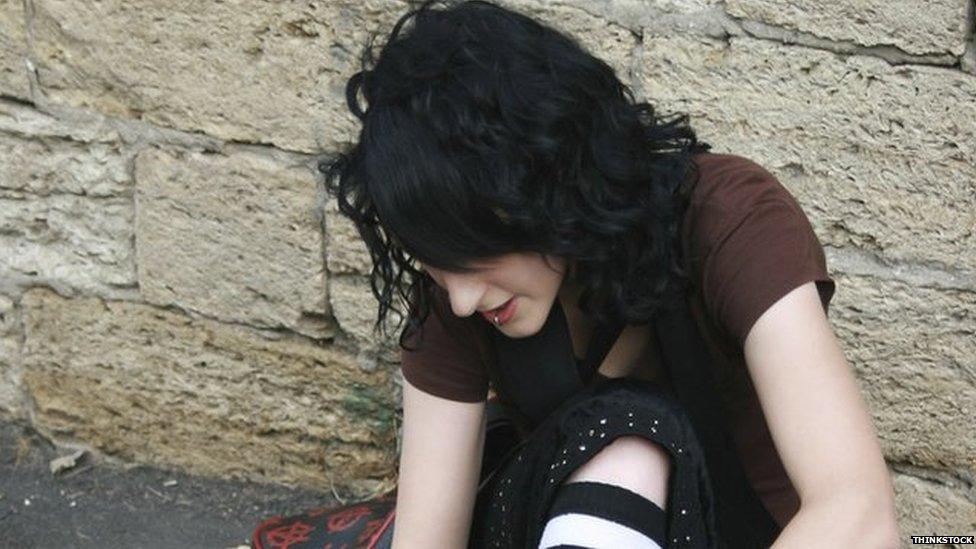
A study suggests that young people who identify as goths may be at increased risk of depression and self-harm.
The link is not fully explained by researchers but a tendency for goths to distance themselves from society is said to play a part.
BBC News website readers share their experiences of being a goth.

Lydia, 25, London
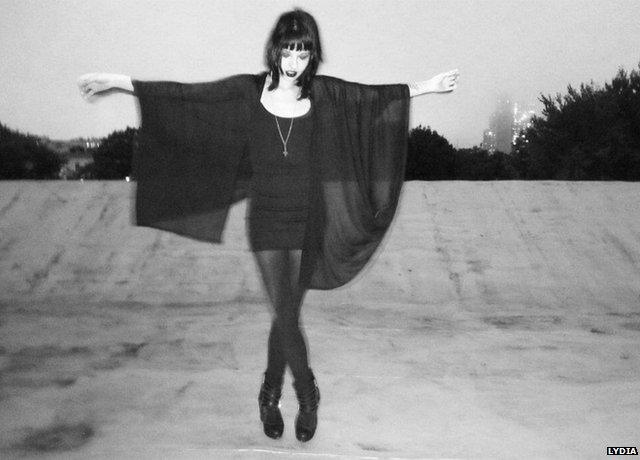
"I was attracted to this lifestyle because I was already depressed," says Lydia
"I feel like it is more honest to be a goth. Normal people have the same amount of depression as goths, but at least there's more honesty about it in goth culture.
I like goth music and shows. I just gravitate towards it as a personal thing. There is no peer pressure.
I was always depressive by nature. I had a difficult childhood and a pessimistic outlook on life.
For a few years before I embraced the gothic subculture, I played at being twee and surrounding myself with false cheer and bright colours in an attempt to ignore how depressed I truly was.
Admitting, understanding and owning depression are much better ways of handling those feelings than trying to suppress them by pretending to be happy when you're not.
If people are already depressed, they will gravitate towards the goth culture. But there are quirky goths who are not depressive at all."

Dawn Debenham, 23, York
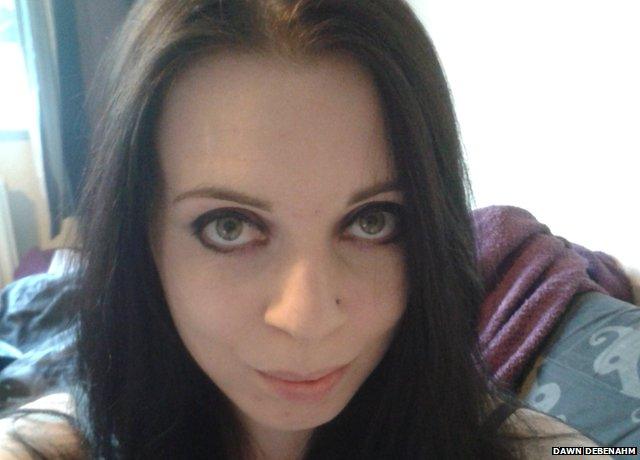
"The alternative community accepted me with all my flaws," says Dawn Debenham.
"I identify as goth and was drawn to it because I was bullied at school for not looking 'normal'. I had severe problems with my teeth and jaw.
I was also a bit of a swot. I used social media to speak to others like me in online communities.
I was the reject of the rejects at school. The alternative community accepted me with all my flaws.
It is a community with the most accommodating people out there from all walks of life with all kinds of flaws and disabilities and every single person is accepted.
Were it not for this community, I would not be where I am today.
I still have mental health issues from the bullying I suffered throughout my school career, but I am able to cope so much better and I am currently studying for a PhD in Nuclear Physics, with nothing but support from my alternative friends.
For me, being a goth is not a cause of mental illness, it is a sanctuary from it."

Karen Anne Chudley, Hampshire
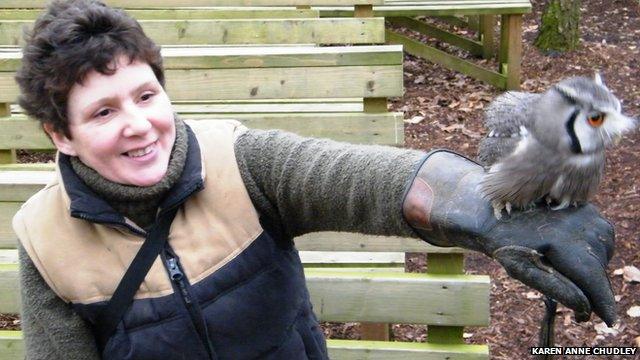
Karen Anne Chudley is a former goth
"I was a goth in the 1980s. I even saw [goth pioneers] Bauhaus at their final 'RIP concert' at Hammersmith in 1983.
Back then, it was just about an image and it was fun. It was also cheaper to be into punk and goth because you could buy black clothes in charity shops.
From my experience as a goth, my friends and I were always more sensitive in nature.
I feel more in line with my emotions and am more willing to to admit to feeling happy or sad.
I don't think being a goth predisposes you to being depressed."

George Roberts, 25, Plymouth
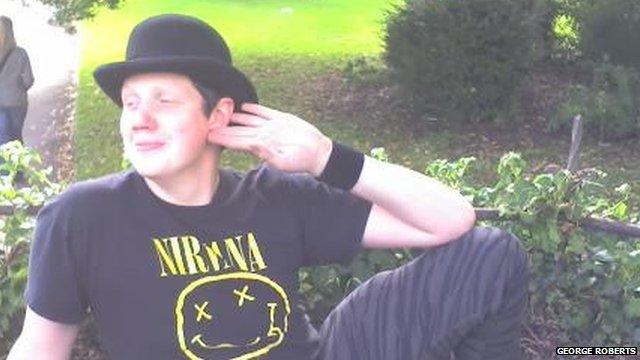
"I saw the subculture as an outlet and a way to express myself," says George Roberts
"I grew up as a goth between the ages of 13 and 18. I identified with the music and to be honest at 25 years old, I still do.
When I was going through my goth stage, I was not depressed due to the music or the subculture. It was more of a release from my parents splitting up and my mum's own depression.
I saw the goth subculture as an outlet and a way to express myself.
It was also a way of being individual and also to fit in with my friends.
It was also a way of trying to get on with people and trying to find acceptance."

Chris Crowe, 26, Ormskirk
"It's hardly a surprise that if you don't dress in a tracksuit, you're seen as a freak.
It's tragic that the majority of the goth or alternative subcultures are usually so creative, but the abuse received from the rest of society crushes our spirits to a point where we all feel so under-represented that sometimes self-harm feels easier than speaking out.
I'm still into the music and still dress as a goth. In primary school I was popular, top of the class.
Then I ended up at the bottom of the class with no friends. Someone threw something at my face and another pupil, a goth, stepped in and took me under their wing.
That's when I developed an affinity for the music and goth way of life. I was happy with my goth friends.
I was diagnosed with depression but I think that was related to how I was treated by society."
Interviews by Alison Daye
- Published28 August 2015
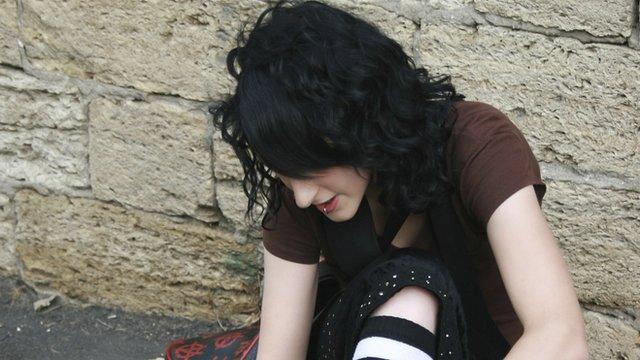
- Published18 February 2014
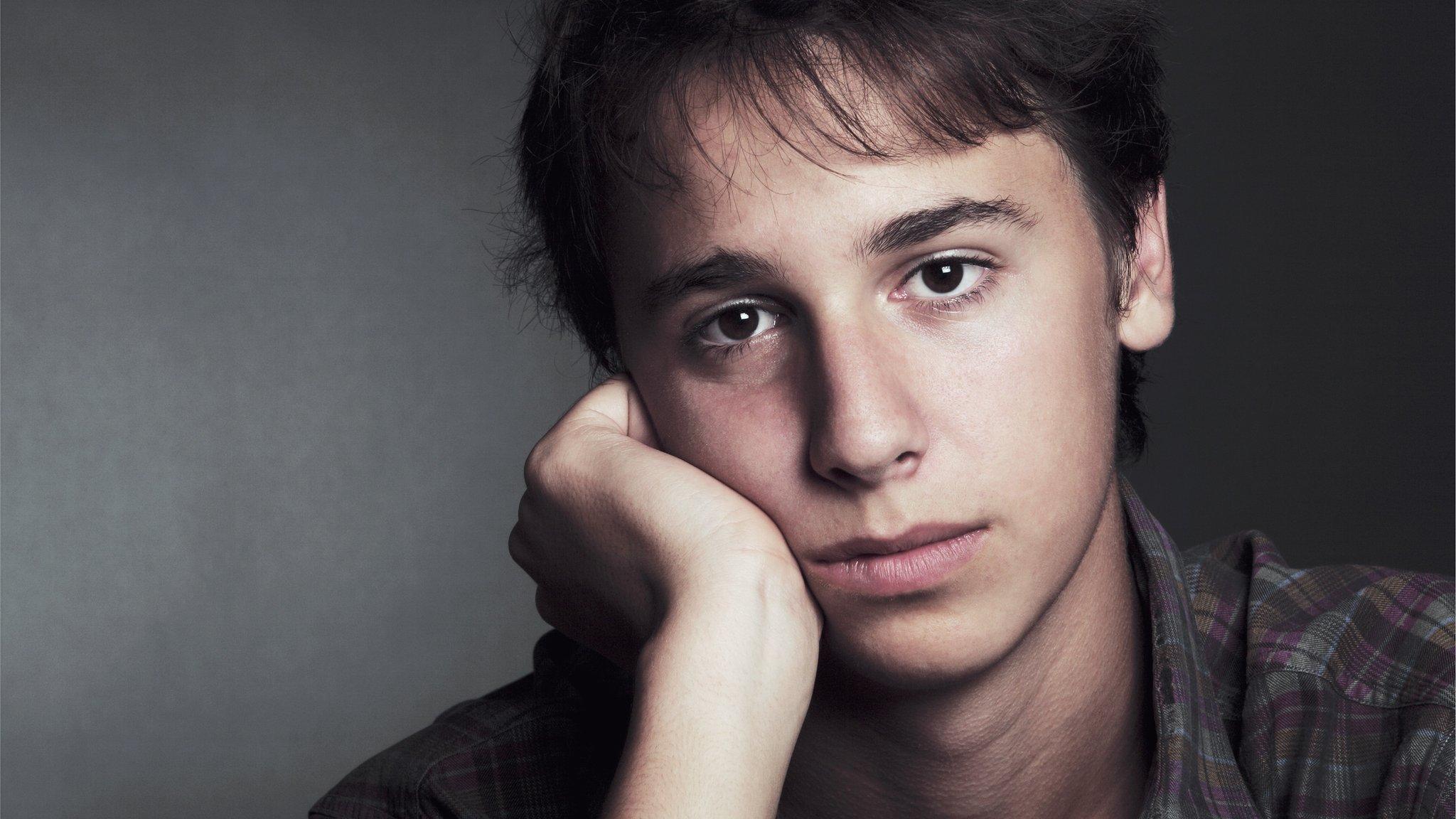
- Published4 April 2013
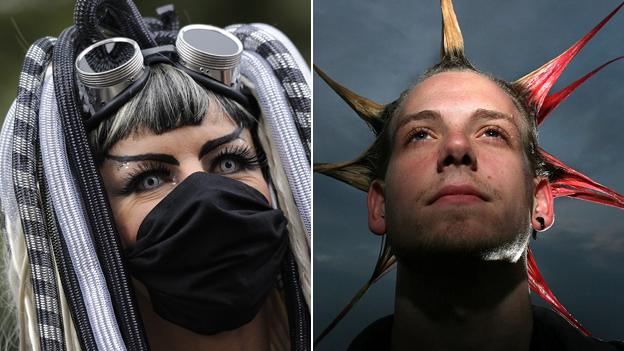
- Published17 February 2015
